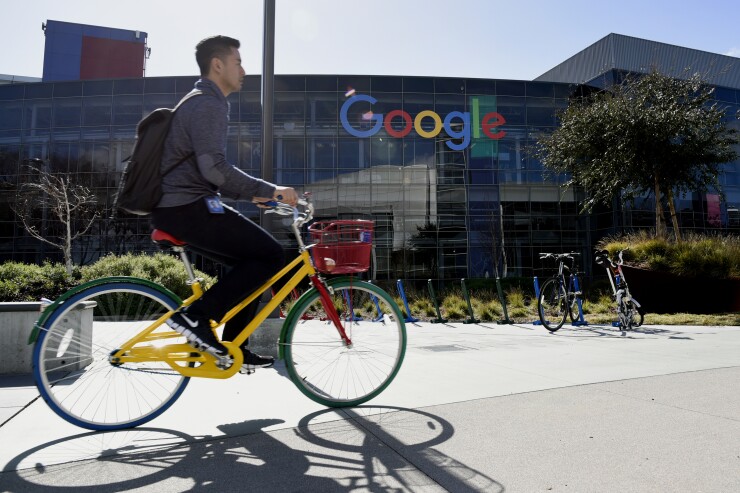Mountain View, California, voters will decide this fall whether companies like Google should pay more in business taxes to help pay for transportation and housing projects in the Silicon Valley city.
The City Council voted unanimously Tuesday to go forward with a “head tax” proposal that city officials had been mulling for months and place it on the November ballot. The measure requires a majority vote to pass.

The plan would charge employers on a sliding scale based on their size, with a maximum of $150 per employee for larger companies.
Companies with fewer than 50 employees would pay a base rate of between $100 to $400 per business while those with more than 50 would be charged a base rate plus a per-employee charge of between $75 to $150.
The tax would raise $5.9 million a year, according to a city staff report.
Alphabet Inc. and its Google subsidiary are headquartered in Mountain View and is by far its largest employer with more than 23,000 workers.
Google/Alphabet would generate more than half of the head tax revenue with an estimated $3.3 million.
City officials say the tax essentially updates the city’s business license fee, which has remained at $30 since 1985.
Mountain View Mayor Lenny Siegel said the city lacks funds for transportation projects that cost hundreds of millions of dollars. He said there’s a correlation between the number of employees at a given company and vehicles on the street. Those companies will benefit from transportation and housing projects, Siegel said.
"Employers have difficulty retaining workers because housing is super-expensive and other than Caltrain there's no good public transit," he said.
Google has not commented on the plan.
Siegel said he sees the program as working with the company to solve city problems and not an attack on Google.
Most of the proceeds from the tax would be deposited into a special fund for transportation projects while at least 10% would be dedicated towards affordable housing programs.
Proposed city transportation projects include an elevated, automated guideway that would link a downtown transit center to the main Google campus and other businesses along the city’s North Bayshore area. Other plans include improved railroad crossings and bicycle and pedestrian paths.
The city polled more than 900 likely voters in June on the tax proposal and found that 62% would support an employer tax, according to the staff report.
Support for the tax was based on residents believing that businesses should pay their fair share, the poll found. Those against it, however, were concerned that it could hurt small businesses, according to the poll.
Levying less on small businesses and more on larger companies made it more appealing to voters, the poll found.





